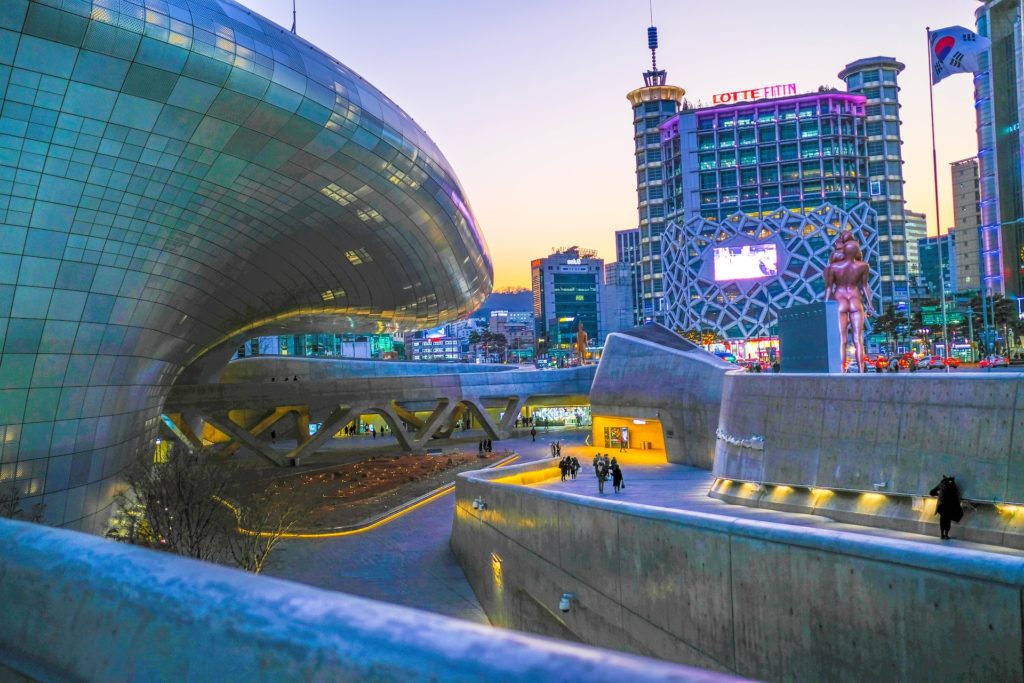In South Korea, foreign workers must have the appropriate visas and work permits, as stipulated by immigration regulations. Employee work permits must be obtained and sponsored by a locally regulated and established firm, which can be difficult for newcomers to the South Korean market.
Obtaining all appropriate work permits for the people you wish to bring with you is a vital element of the procedure while preparing for an expansion into South Korea. However, applying for and securing work permits in South Korea might be complicated. There are several types of visas, each with its own set of criteria, so failing to plan ahead of time might result in costly delays.

Why is a work permit needed?
A visa is a stamp in your passport that allows you to travel to, work in, and live in another country for a set time. A work permit and a work visa are required for foreign employees in the Republic of South Korea. Lawful employment in the country is impossible without these legal documents.
Work visas protect the employee, the employer, and the country by ensuring and proving your legal presence in the country. Furthermore, using work visas and permits to migrate for work is more ethical.
Types of work visas in South Korea
In South Korea, there are numerous categories of working visas that allow for long-term employment. Your staff can stay for up to 90 days with these visas.
E-1 professor visa
This visa is for ex-pats who intend to give lectures or conduct research in their profession at a college-level education facility. It’s a one-year multiple-entry option that employees can often renew in one-year increments.
E-2 foreign language instructor visa
This visa is for ex-pats who want to teach a foreign language at a firm, a school run by a broadcast station, an elementary school, a middle school, or a high school. It is a two-year multiple-entry visa that can be renewed every two years by the employee.
E-3 research visa
E-3 visas are for foreigners who are invited by a governmental or private organization to conduct research in natural science or sophisticated technology. The E-3 is another multiple-entry visa that is valid for one year and can be renewed every year.
E-4 technological guidance visa
When invited by a public or private organization, ex-pats with unrivaled experience in science or technology can enter South Korea on an E-4 visa. A multiple-entry version of this visa is valid for one year and can be renewed annually, while a single-entry visa is valid for three months and can be renewed annually as well.
E-5 special profession visa
Architects, attorneys, physicians, accountants, and others who are globally licensed and have permission to practice in their chosen field from the South Korean government are eligible for the E-5 visa. Choose between a multiple-entry visa, which allows you to remain for a year and then renew at one-year intervals, and a single-entry visa, which allows you to stay for three months.
E-6 culture and art visa
Expats with musical, artistic, or literary backgrounds can apply for this one-year multiple-entry visa by working in a variety of jobs. They can also renew it every year.
E-7 specially designed activities visa
Expats are required to take part in activities organized by the Korean Ministry of Justice through a public or private organization. Employees can stay for one to three years under the multiple-entry option, which they can renew in one- to three-year increments. They can also get a three-month single-entry visa, which they can renew every year.
D-5 long-term news coverage visa
This visa is designed for journalists who work in international media outlets such as television, newspapers, magazines, and more. It lasts three months and can be renewed once a year.
Requirements to obtain South Korean work visas
Each working visa in South Korea has its own set of requirements. Most, however, need the applicant to submit a completed application form, an original passport, copies of the passport, and a colored passport-style photo. Other prerequisites could include:
- A copy of the contract of employment
- Certificates of education and professional experience
- A criminal history
- Letter of recommendation
Application Process
South Korea accepts visa applications both online and in-person, including:
- E-visa application through the visa portal
- A diplomatic delegation from South Korea
- Visa portal confirmation
- Confirmation of the visa at a South Korean immigration office
The type of visa your employees require and how they apply for it is frequently determined by their job. Keep in mind that to get an application for each employee, your company must be a legal entity in South Korea. You will then function as a sponsor for all of your applications for work visas.
Other important points to consider
Employees who wish to bring their families to South Korea will have to take an additional step. To enter South Korea, a spouse and any unmarried minor children must have F-3 visas. They may be limited to staying only as long as the main candidate or your employee. Other members of the family will be limited to a three-month single-entry visa. They can, however, renew this visa every year.
